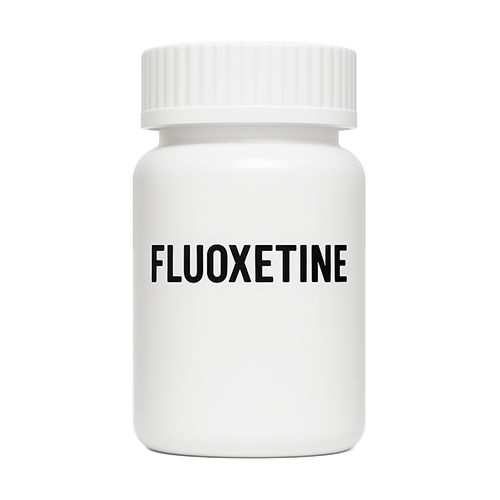Propecia (finasteride) is a prescription medication used to treat androgenetic alopecia — the most common form of hair loss in men. It works by lowering levels of dihydrotestosterone (DHT), a hormone that contributes to shrinking hair follicles over time.
While results vary, many users see slowed hair loss and potential regrowth after several months of continuous use. Here’s what to know about how Propecia works, what side effects to monitor, and how long to take it for best results.
Propecia Product Description
Propecia is a clinically proven anti-hormonal medication designed to treat male pattern baldness, also known as androgenetic alopecia. This medication works by inhibiting the activity of the 5α-reductase enzyme, which plays a critical role in the conversion of testosterone into dihydrotestosterone (DHT), the hormone responsible for shrinking hair follicles. By reducing DHT levels in the scalp, Propecia helps slow hair loss and promotes the regrowth of healthier, thicker hair in men who are genetically predisposed to hair thinning. In addition to its hair-restoring benefits, Propecia contributes to maintaining existing hair density and delaying the progression of baldness when used consistently. Propecia is most effective when prescribed to men between the ages of 18 and 41, as its preventative and restorative effects are strongest in the early stages of hair loss. It offers a non-invasive alternative to surgical procedures and has become a popular choice for long-term management of hair health. Treatment outcomes may vary between individuals, but many users notice visible improvements within three to six months of continuous use. Long-term adherence to therapy is crucial, as discontinuation often leads to the return of hair loss. Propecia has been widely adopted by healthcare professionals as part of a comprehensive approach to male hair loss management. For best results, the medication should always be taken as prescribed and under medical supervision.
Drug Uses
Propecia is specifically indicated for the treatment of androgenetic alopecia in men, helping to reduce hair loss and stimulate new hair growth by suppressing the 5α-reductase enzyme. By limiting DHT production, Propecia helps protect hair follicles from shrinkage, allowing them to maintain normal function and support the growth of stronger hair strands. The recommended daily dose is 1 mg, and increasing this dose has not been shown to provide additional benefits. Doubling the dosage is not recommended and may increase the risk of side effects without improving therapeutic outcomes. A continuous treatment course of at least three to six months is necessary to achieve optimal results, and ongoing therapy is required to maintain improvements over time. For men who discontinue treatment, hair loss typically resumes within 12 months. Propecia is not approved for use in women or children and is exclusively intended for adult men.
Medically reviewed | Based on clinical data for finasteride in androgenetic alopecia management.
Propecia is typically taken as a 1mg tablet once daily. It may take 3 to 6 months to notice changes, and stopping treatment often leads to a reversal of any benefit. Side effects may include changes in libido or mood in some users.
Missed Dose
If a dose of Propecia is missed, it should not be taken later or doubled. Patients are advised to simply resume their regular dosing schedule at the next scheduled time. Skipping occasional doses is unlikely to significantly affect the overall effectiveness of treatment, but frequent missed doses may reduce its ability to prevent hair loss. To ensure consistent results, taking Propecia at the same time each day is recommended. Adherence to the prescribed regimen is key for long-term success in managing hair loss.
More Information
For best results in treating androgenetic alopecia, patients must follow the Propecia dosage schedule without interruption. Irregular use can lead to reduced effectiveness, causing hair loss to resume. Propecia can be taken with or without food, and it is important to swallow the tablets whole with water. Alcohol consumption does not directly impact Propecia’s effectiveness, but maintaining a healthy lifestyle supports overall hair health. Regular follow-ups with a healthcare provider are advised to assess treatment progress and address any concerns.
Storage
Propecia should be stored at room temperature, not exceeding 30°C, in its original container to protect the tablets from moisture and light. It is important to keep the medication in a secure location, out of the reach of children and away from areas with high humidity, such as bathrooms or kitchens. Proper storage helps ensure the medication retains its effectiveness throughout its shelf life. Expired tablets should be disposed of safely according to local guidelines.
Propecia Safety Information
Long-term use of Propecia may be associated with rare cases of breast tissue changes, including nipple discharge, lumps, or gynecomastia. Patients experiencing these symptoms should immediately discontinue use and consult a healthcare provider for evaluation. Propecia is not suitable for men with lactose intolerance, as the tablets contain lactose, and it is also contraindicated for those with glucose-galactose malabsorption. Routine medical check-ups are recommended during treatment to monitor for potential side effects and ensure overall safety. Pregnant women should avoid handling crushed or broken Propecia tablets due to potential risks to a male fetus. The medication is intended exclusively for use by adult men and should only be used under the guidance of a healthcare professional.
Disclaimer
The information provided in this review of Propecia is for educational purposes only and does not replace professional medical advice from a qualified andrologist, trichologist, or other healthcare professional. Before starting any treatment for androgenetic alopecia, individuals should consult with a specialist to determine the most appropriate therapy. The online pharmacy is not responsible for any consequences arising from the improper use of this information or the medication itself.
Propecia Side Effects
Propecia is generally well-tolerated, and most side effects are mild and temporary. Some men may experience headaches, decreased libido, ejaculation disorders, or impotence during treatment. In rare cases, patients with benign prostatic hyperplasia taking Propecia may report breast tenderness, rash, or breast enlargement. Gastrointestinal discomfort and mild respiratory symptoms like bronchitis have also been observed. Mood changes and mild depressive symptoms have been occasionally reported, though these effects typically resolve upon discontinuation of the medication. Regular follow-up appointments are advised to monitor patient response and address any concerns promptly. Most side effects improve over time, and adjusting the treatment plan can help manage symptoms. Patients should immediately report any persistent or severe reactions to their healthcare provider for evaluation and possible modification of therapy.
Looking into other hormone-modulating treatments? See Arimidex or Dutasteride for different indications involving DHT or estrogen pathways.







Reviews
There are no reviews yet.